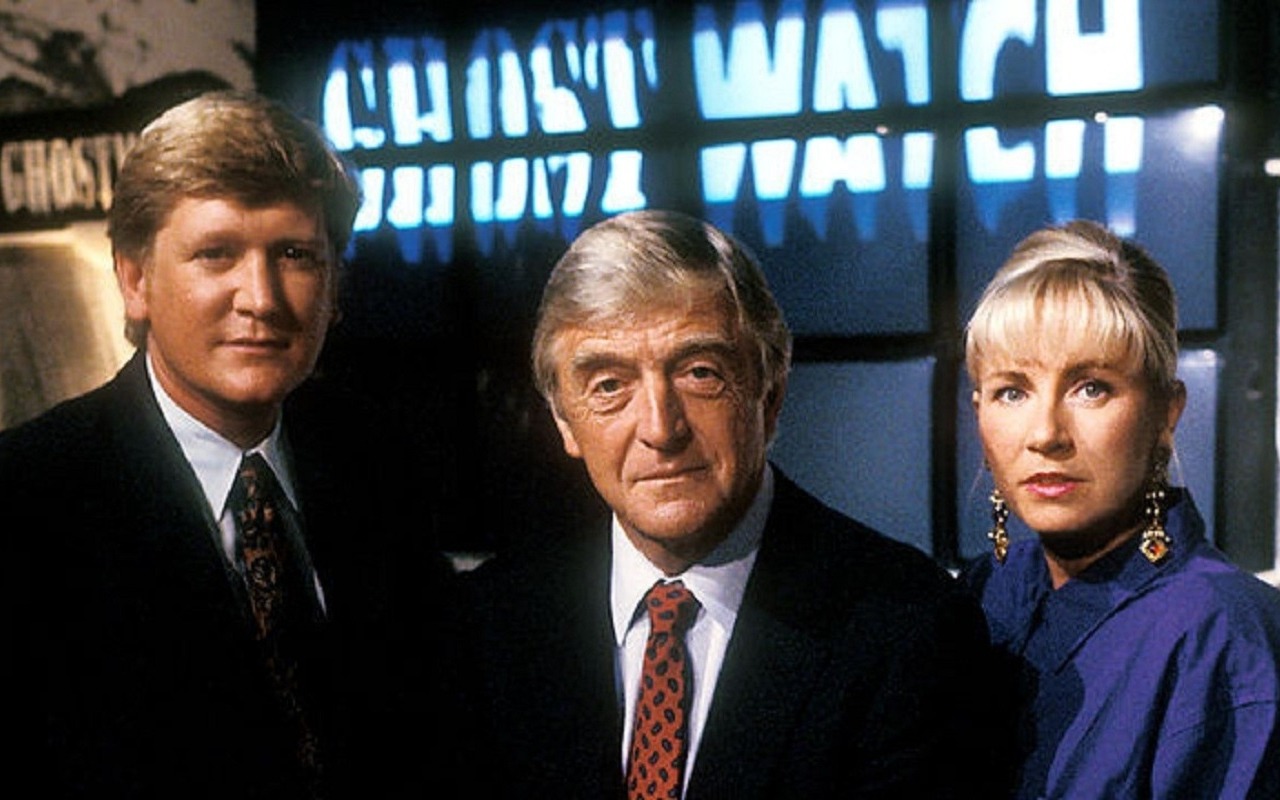‘Ghostwatch’ and the increasingly blurred line between reality and fiction
One of the best TV shows I’ve ever watched was a Channel 4 programme called The Trial: A Murder in the Family, which followed a fictional court case but featured real professionals as the prosecuting and defence counsel, and judge, as well as a jury made of twelve members of the British public. The show was brilliant for many reasons but one of its most engaging aspects was the blurred line between reality and fiction. No matter how many times I re-read the credits, I couldn’t shake the feeling there must be some truth to what I was watching.
Hypothetically though, let’s say I had genuinely believed the show was real, which deeply disturbed me and eventually led to severe mental health problems – who would be to blame? Is it Channel 4 for not making it clear enough that the show was fictional? Is it the show for not emphasising it was fiction throughout? Or was it my own for not researching properly? Surely the show can’t be blamed for the audience’s reaction when it’s not in their control? Then again, if what they’ve created has led to such serious consequences, shouldn’t they take some responsibility? And that’s where Ghostwatch comes in – a halloween special that quickly became one of the BBC’s most controversial shows to date.
Stephen Volk, the show’s writer, was extremely interested in pushing the boundaries of realism
Aired on Halloween night 1992, Ghostwatch was a reality-horror-documentary that followed a supposedly “live” investigation into paranormal activity recorded at a family home. Stephen Volk, the show’s writer, was extremely interested in pushing the boundaries of realism within the show as the scary stories he enjoyed most as a child were the ones presented as true. With this in mind, the Ghostwatch team didn’t want the show to be fronted by conventional actors but instead familiar and well trusted TV personalities to make the show more believable, such as Michael Parkinson, who presented Ghostwatch alongside Sarah Greene, a popular children’s presenter, and her husband Mike Smith, a TV and radio host.
However, before the show was even aired, there were already concerns from the BBC about presenting a fictional programme as real. They came to the conclusion that Ghostwatch could only be aired if precautions were taken beforehand, such as the BBC announcer mentioning that it was a fictional piece before the show began. The audience were also given a number throughout to call and share their paranormal encounters, which played a pre-recorded message beforehand explaining the show was fictional. And so in theory, these combined (among others) should have been able to emphasise the piece’s fiction whilst also allowing the audience to enjoy the realistic nature of the show… right?
Wrong.
11 million people tuned in to Ghostwatch and the BBC estimated nearly 20-30,000 phone calls coming in at once. This not only caused the switchboard to jam, meaning the pre-recorded message no longer played, but many of these calls were not actually about paranormal activity and instead the viewers’ confusion, disgust and anger, having genuinely believed they’d just watched Sarah Greene die on national television whilst her husband watched, as well as Michael Parkinson be possessed by a ghost, with the implication that the viewer was next. There seemed to be a collective sense of betrayal towards the BBC, who later apologised after the Broadcasting Standards Commission concluded they had a “duty to to do more than simply hint at the deception it was practising on the audience”. Worse though, it seemed to have genuinely disturbed people. In February 1994, a report was published in the British Medical Journal describing the first two reported cases of PTSD in children caused by a television programme. And even more tragically, Martin Denham, an 18 year old with learning difficulties, committed suicide five days after the programme aired, leaving a note behind which read “if there (are) ghosts… I will always be with you as one”. Both his mother and stepfather blamed his death on the show, claiming he was “hypnotised and obsessed” by the programme.
The backlash to Ghostwatch was understandable, but looking back on it nearly 30 years later, it’s time to start recognising it for what it actually was: a piece of genius
And yet despite all this, did Ghostwatch actually deserve the reaction it received? The show was disturbing, yes, but isn’t that the point of any good horror? Arguably with no other shows like this at the time, the backlash to Ghostwatch was understandable, but looking back on it nearly 30 years later, it’s time to start recognising it for what it actually was: a piece of genius. The subtle ways it engaged the audience in order to blur fiction and reality were truly brilliant and paved the way for future horror classics such as The Blair Witch Project, and so I think it’s fair to say that Stephen Volk’s concept was years ahead of its time – if it were aired today, I’m certain it would have been loved and celebrated instead of shunned. Besides, given the rise in fake news and the internet’s general unreliability, perhaps it’s a good idea we start to question the truth behind the media we consume a little more often…

Comments